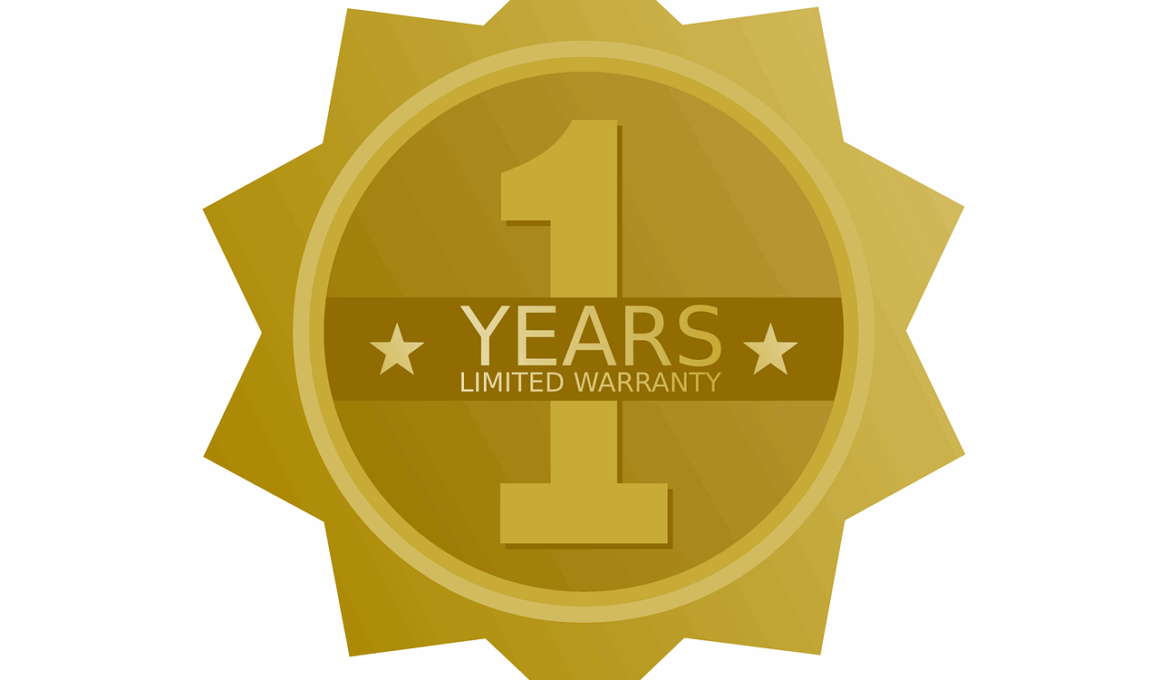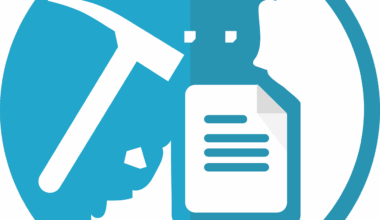The Impact of Product Recalls on Brand Reputation and Ethics
Product recalls are significant events that can substantially affect a company’s brand reputation and raise ethical concerns. When a product is recalled, especially if it poses safety risks, the repercussions can be serious and detrimental to consumer trust. Customer perception often hinges on how companies respond to these situations. Rather than a mere logistical challenge, recalls engage with the ethical duty of manufacturers to ensure their products are safe for public use. Effective communication regarding the recall, including transparent information about the reasons behind it, plays a critical role in maintaining brand loyalty. Moreover, companies need to implement remedial measures to prevent future occurrences, which signifies a commitment to safety. Ethical practices dictate not only the response but also the proactive measures established prior to the potential need for recalls. By fostering an organizational culture centered around safety and ethics, businesses can mitigate damage to their reputation and uphold customer trust, thus illustrating the direct connection between ethical practices, product safety, and the sustainability of brand loyalty in the long term.
The aftermath of a product recall often leads to a reevaluation of brand identity and customer relationships. Consumers typically respond to recalls by questioning the reliability and safety of the brand. The negative impacts may extend beyond immediate sales losses; they may result in lasting distrust. Building back consumer trust necessitates outreach and education, enabling consumers to feel more secure about continued use of the brand. The role of corporate social responsibility (CSR) becomes highly significant here, influencing customer perception during a crisis. Brands that actively engage in community-building efforts and show dedication to ethical practices can weather the storm from product recalls more effectively. Promoting a narrative of accountability can also facilitate a path towards re-establishing consumer confidence. Transparent communication, along with a clear follow-up strategy, can significantly enhance customer recovery after a recall. Furthermore, brands must understand that evolving consumer expectations mean ethical considerations are always under scrutiny. The point of differentiation in today’s market often lies in how a brand navigates crisis situations while adhering to ethical principles to restore its image.
Navigating Ethical Challenges in Product Recalls
One significant ethical challenge during product recalls is ensuring effective and timely communication. Companies must balance the need to inform consumers of the risks with the potential for brand damage that such announcements might generate. Ethical marketing practices encourage companies to disseminate information promptly and transparently, minimizing risks to consumers. Additionally, the ethics of the recall process itself must be scrutinized: Are companies prioritizing consumer safety over profit? The decisions made during recalls can reveal a lot about a company’s core values. A company may choose to downplay dangers, which not only poses risks to public safety but could also result in severe reputational damage if discovered. Moreover, retraining staff and revamping production protocols post-recall showcases commitment, signaling to consumers that lessons have been learned. Failure to address the root causes of issues leading to recalls could indicate a lack of ethical standards. Thus, proactive engagement and continuous safety assessments are paramount, demonstrating a brand’s long-term commitment to not only meeting regulatory requirements but exceeding consumer safety expectations.
Moreover, the role of ethics in product safety extends to third-party manufacturers and suppliers. Companies collaborating with external entities must ensure that these partners share similar ethical commitments to product safety. This alignment is vital, as lapses in safety elsewhere can still harm a brand’s reputation significantly. Continuous monitoring and audits can help maintain accountability across the supply chain. Consumers now prioritize products developed under ethical conditions; thus, brands risk losing them if partners do not adhere to safety standards. Furthermore, sharing information about supply chain practices can reinforce trust; this transparency in operations is increasingly essential to modern consumers. Engaging consumers in conversations about product safety not only demonstrates a brand’s ethical stance but also positions it as a leader in prioritizing safety across its operations. Educating consumers about what to look for regarding product safety and encouraging reports of issues can further enhance a brand’s integrity in the eyes of its customers. Ethical product development and management, therefore, requires sustained commitment throughout every aspect of production and distribution.
The Long-Term Effects of Recalls on Brand Loyalty
The long-term effects of product recalls can be profound, shaping consumer behavior towards affected brands over time. Studies show that consumers exhibit significantly altered purchasing decisions following recall announcements. Loyal customers may not instantly abandon a brand; however, trust may wane, leading to reduced frequency of purchase. Even in industries where products are recalled infrequently, when it occurs, the impact can redefine relationships. Rebuilding trust necessitates undergoing a transformation in how brands tackle safety and communication. A successful recovery involves not just addressing immediate concerns but also re-establishing prudent safety measures that reassure the consumer base. Additionally, successful management in the wake of a recall can enhance a brand’s credibility. Instead of being viewed through the lens of failure, responsiveness can provide a new narrative, indicating growth and resilience. Ethical practices emphasized during recall management set a brand apart from competitors, evolving perceptions favorably over time. Through sincere actions and a commitment to improvement, brands can convert negative experiences into opportunities for developing deeper consumer connections, ultimately reinforcing long-term loyalty.
In addition, the significance of consumer feedback should not be underestimated when it comes to product recalls. Engaging with customers provides invaluable insights that brands can leverage to enhance product safety measures. Implementing channels for feedback before, during, and after a recall ensures that consumer voices are heard and valued within the operational framework. Establishing such a dialogue communicates a brand’s commitment to its customers and enhances accountability in its ethical standards. Furthermore, solicited feedback serves as a blueprint for brands striving for continual improvement. Ethical product management mandates that brands take user concerns sincerely, bolstering safety in subsequent production cycles. Using feedback to guide enhancements strengthens customer relationships and encourages loyalty. When brands showcase their responsiveness to concerns, they not only survive recalls but may thrive as consumer advocates in safety assurance. As consumers align their values closely with brands they interact with, fostering an inclusive environment wherein consumers contribute to the dialogue of safety instills trust and fosters loyalty throughout the lifecycle of a brand’s products.
Conclusion: Ethics, Trust, and Brand Sustainability
In conclusion, the interrelation between product recalls, brand reputation, and ethics cannot be overstated. Brands are increasingly tasked with navigating the complexities of ensuring that their products meet rigorous safety standards while simultaneously maintaining consumer trust. Ethical practices are vital in establishing robust frameworks for managing recalls, showcasing brands that genuinely prioritize safety above all else. These frameworks contribute directly to consumer perceptions and the preservation of long-term loyalty. Moreover, brands committed to transparency and accountability throughout their operations are more likely to emerge resilient from recalls rather than face lasting damage. The modern consumer is well-informed and increasingly values ethical business practices; therefore, establishing a reputation for safe and reliable products ultimately fosters loyalty. Ultimately, preparing for product safety challenges will not only mitigate risk but bolster brand sustainability, ensuring continuous operational success. Through a combination of proactive safeguards, sound ethical approaches, and sincere engagement with consumers, brands can navigate the difficult landscape surrounding recalls, ultimately thriving as champions of safety within their respective industries.
Acknowledging the profound implications of product recalls and their ethical dimensions establishes a pathway forward for brands. Prioritizing product safety and ethical business practices creates a fundamental relationship with consumers, where trust becomes paramount. This not only extends beyond individual transactions but influences overall market success and longevity. Brands often face steep consequences when ethical considerations are inadequate, particularly when safety is compromised. Understanding the nuances of effective communication, supplier partnerships, and customer feedback loops within the framework of recalls defines a brand’s resilience. The journey toward establishing a reputation as a trustworthy entity begins with a commitment to stringent safety protocols, fostering ongoing dialogue with consumers. As we advance, adapting to the evolving landscape of consumer expectations accentuates the importance of ethics in product safety. Ultimately, engaging deeply with these principles not only enhances brand reputation but secures place in the hearts of consumers who prioritize safety and trust. A brand recognized for strong ethical foundations will likely flourish, as consumers continue to choose brands that embody their values and commitment to safe products.


